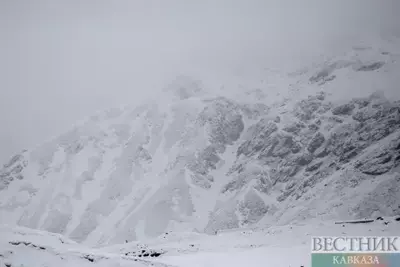72 years have recently passed since the beginning of operation 'Lentil', which became one of the biggest crimes of the Soviet regime against its own people. Innocent children, women and the elderly, as well as the Soviet soldiers who defended their Motherland during the Great Patriotic War suffered due to the fact that the leaders of the USSR exploited the permissiveness of the law. February 23rd 1944 was the first day of the mass deportation of Chechens and Ingush from their homeland in Central Asia.
The Nakhs were neither the first nor the last peoples deported during World War II on an ethnic basis because of "disloyalty". 367,000 Volga Germans were resettled in the summer of 1941, in October 1943 about 70,000 Karachai people, and from December of the same year about 100,000 Kalmyks. Balkars, Crimean Tatars, Azerbaijanis, Armenians, Pontic Greeks, and Meskhetian Turks were deported after operation 'Lentil', but none of these crimes were so ambitious.
According to official information, 493,269 people were deported with 180 echelons from the abolished Chechen-Ingush ASSR. 1272 people died in train carriages. In addition, Chechens and Ingushetians were deported from other cities of the USSR, and the soldiers of these nationalities, including those who were awarded medals and orders, were demobilized and also exiled. 85,000 families were sent to the Kazakh SSR, and 20,000 families to the Kyrgyz SSR. There were no conditions for them, and local collective and state farms could not provide them with any housing or work. Those who didn't want or couldn't leave the Chechen-Ingush ASSR were eliminated by NKVD troops.
In 1945 the decline was 42,422 people, in 1946 – 10,633 people, in 1947 – 3645 people, in 1948 – 4834 people.
The scientific director of the Russian Military-Historical Society, Mikhail Myagkov, noted in a conversation with a correspondent of Vestnik Kavkaza that it was a crime against entire peoples. It was an insulting crime, as representatives of the deported people had bravely defended the Soviet Union during the Great Patriotic War.
"It was confirmed by a number of documents that were previously available and that are open at the moment that North Caucasian peoples, including Chechens, Ingush, Karachais and Balkars heroically fought at the fronts of the war. They defended the Brest Fortress. There were a very large number of Caucasian peoples, including Chechens. It is incorrect to say that they behaved unworthily during the war and it isn't relevant regarding the historical truth,'' he said.
Myagkov noted that panic, the retreat of troops and surrender were typical things for different regions of the USSR in the first period of the Great Patriotic War.
"First of all it is necessary to refer to the character of the war on the eastern front, the policy of Nazi Germany, and the situation that developed at the fronts. It would be anti-historical to say that some people fought better than others.
















